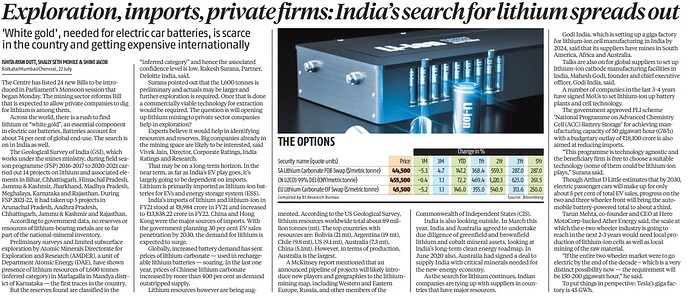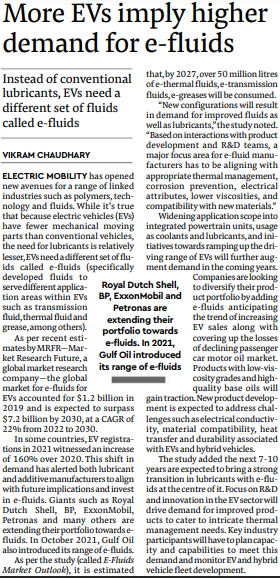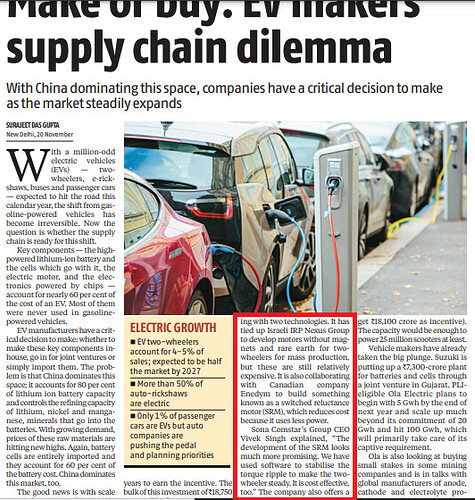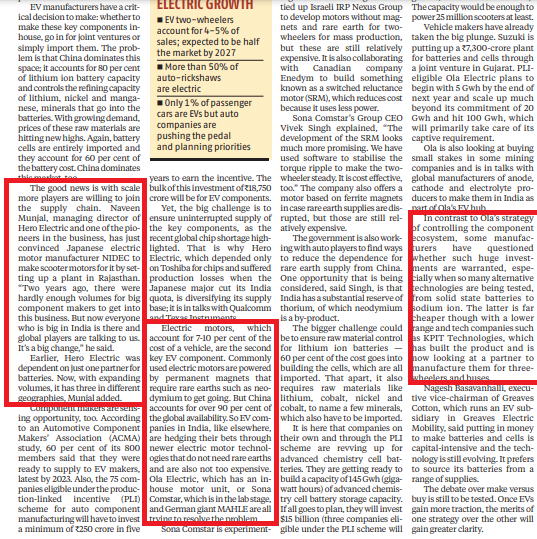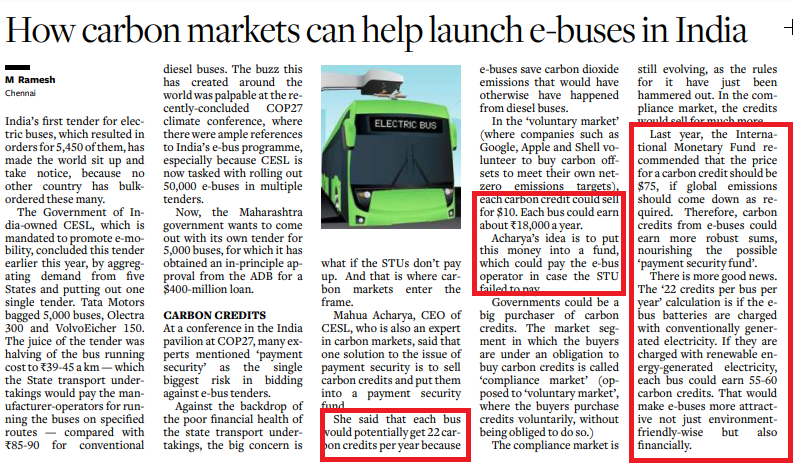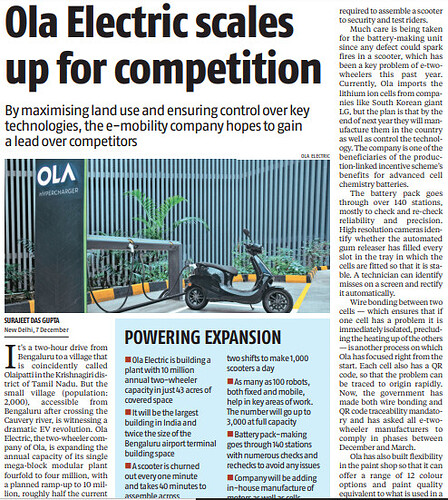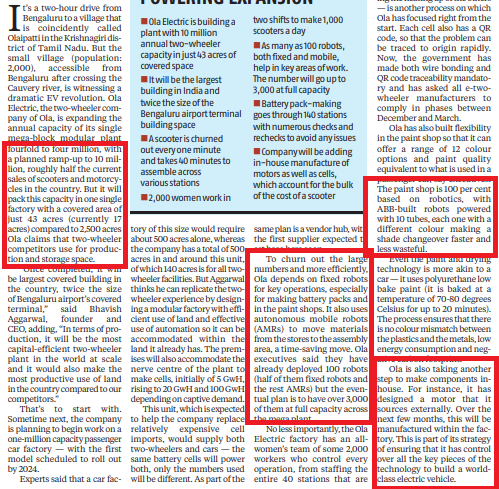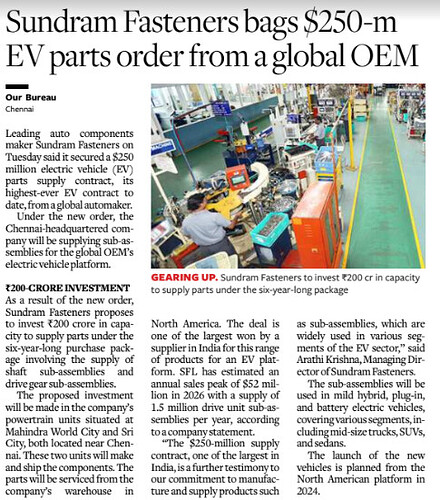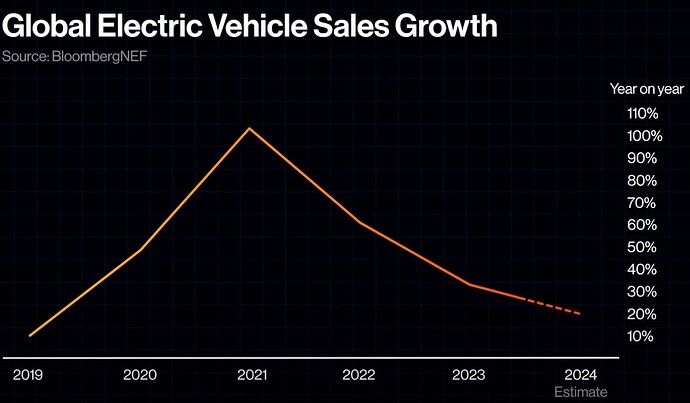Does lithium trade in Indian markets ?
@Chumantar No, Lithium is not traded as a commodity itself.
The question on why did a company like BYD enter into a JV with Olectra remains a mystery to me as well. This article throws some light on how the partnership grew over time - Our Competitors Are Partners In India s Electric Mobility Olectra Greentech - BW Businessworld. But the exact nature of their partnership is still unknown.
Olectra has filed announcement at least 3 times during September for getting new orders for supply of bus
However, stock price does not reflect any positive impact of those
May be, it knows something more
There is fund raising of Rs 800Cr by issuance of equity shares of convertible securities through a qualified institutional placement.
Valuations at which olectra is trading, it will need to many such orders to justify, this happens when you overpay and get disappointed when stock is stagnant even after favourable news.
Hi, I have a very basic question. As we know EV is being considered as the future of passenger vehicles, but in the meantime govt is pushing for ethanol blending with target of E20 petrol by 2026. A country like Brazil is having much higher blended form as well. So aren’t these two competing industries and only one will survive? Or there will be ethanol and EV cars but zero traditional petrol/diesel vehicles by 2030/35?
A couple of questions I have if someone can help me
- is there any standardization for the EV chargers across all vehicles? if not then which company will benefit if there is a push from the government to make standard chargers like today we have a push for type c charges for phone
- Limited availability of charging stations - which company will be benefited from an increase in the installation of EV Charging stations?
Electric vehicles (EVs) have indeed brought about a disruptive change in the auto industry. The traditional automotive landscape has been dominated by internal combustion engine (ICE) vehicles for over a century, but the advent of EVs, spearheaded by companies like Tesla and Ford, has the potential to revolutionize the way we think about transportation.
Tesla, led by visionary entrepreneur Elon Musk, has been at the forefront of the EV revolution. They have effectively changed the perception of EVs from being niche and limited to mainstream and desirable. Tesla’s relentless focus on innovation, cutting-edge technology, and range optimization has resulted in vehicles like the Model S, Model 3, and Model Y, which have set new standards for performance, range, and overall driving experience. Tesla’s Supercharger network has also addressed the issue of charging infrastructure, making long-distance travel in EVs a viable option. By consistently pushing the boundaries, Tesla has forced traditional automakers to take EVs seriously and invest in their own electric offerings.
On the other hand, Ford, an established player in the auto industry, has also recognized the potential of EVs and is making significant strides to change the game. Their flagship electric vehicle, the Ford Mustang Mach-E, combines the iconic Mustang brand with all-electric power, offering a blend of performance and sustainability. Ford has also announced ambitious plans to electrify its entire lineup, including the popular F-150 pickup truck. With its vast manufacturing capabilities and a well-established dealer network, Ford has the potential to scale up EV production and make electric vehicles more accessible to the masses.
Both Tesla and Ford are not just producing electric vehicles; they are redefining the entire auto ownership experience. EVs offer advantages like lower operating costs, reduced emissions, and a smoother, quieter ride. Additionally, they provide an opportunity to integrate advanced driver-assistance systems and autonomous driving technologies, further enhancing safety and convenience.
The transition to electric vehicles is driving advancements in battery technology, which has implications beyond the automotive industry. The demand for EV batteries is pushing researchers to develop more efficient and affordable energy storage solutions, which could have a profound impact on renewable energy adoption and grid stability.
Is is software sale? It seems like just unblocking the feature remotely which is blocked.
All components are already there in all similar models and company has already incurred cost to put them. Company is trying to recover cost from few willing to use and pay for them.
Let us see how this plays out. This is not same as software sale.
Source- Team-BHP forum article
First made in India Sodium ion battery- Starter Battery with 10 year warranty could be a game changer for EV industry in India.
While this appears to be a relatively small company which has launched this product , Big Daddy like Reliance is already sitting on this technology which has no imported lithium ion in it for all types applications as energy storage solutions.
As per apple - (1) Demand for EVs has slowed in recent month as borrowing costs remain high, which has made the market increasingly competitive as major players try to win over customers. (2) In January, Tesla warned that its sales growth would be weaker this year than in 2023
I think hype over EV are euphoria than reality in future. Multiple headwind could disappoint many investors! Alternate fuel driven vehicles - CNG, Hydrogen, Biodiesel still good to go…Looks Hydrogen driven vehicles will be next trend to play…so many projects (real projects!) are coming on green hydrogen

